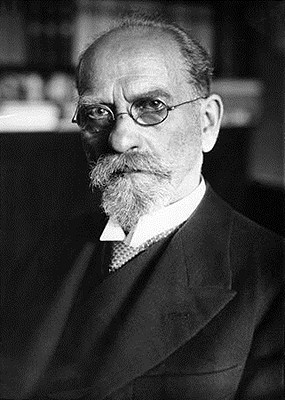Husserl: Categorial Intuition, Categorial Object (Drummond)
A categorial intuition is the fulfilling act for an empty, signitive intention of a categorial object. Categorial intuition
directly presents the unity of whole and part, of the members of a group, of the terms of a relation, and so forth.
Categorial intuition is a modification of perception, insofar as the subject sees, for example, not merely “the red door” but “that the door is red.” The formal or categorial moment of the categorial object is not the correlate of a perceptual moment in the
fulfilling act insofar as the categorial intuition is not directed simply to the concrete object or to any of its abstract perceptible qualities.
Instead, categorial intuitions, as do all categorial acts, involve a moment of thinking that moves beyond its perceptual foundations. Categorial intuition is a “thoughtful perception” that does not merely add thoughtfulness to perception but unifies what is directly encountered in and of an object that is at once perceived (or remembered or imagined) and thoughtfully articulated.
A categorial object is one infused with form or structure. Examples of categorial objects are states of affairs, groups,
relations, numbers, or any object in which parts have been articulated. The articulated whole, in which the parts are both distinguished and joined together, is the categorial object. The categorial object can be intended in an empty signitive intention or in a categorial intuition, and the categorial object is the identity given in this manifold of absent and present modes.
Early in his career — up through the Logical Investigations — Husserl understood the distinction between non-categorial and categorial objects and that between pre-predicative and predicative experiences as correlates, but he came to recognize that even pre-predicative experience has a kind of categoriality proper to it. This pre-predicative categoriality is not yet fully articulated, but it nevertheless adds a moment of form to what is experienced. The adumbrational character of perception means
that the object is experienced as something or other; perception is categorially structured in an anticipatory manner by the hermeneutic-as.
In: John J. Drummond. Historical Dictionary of Husserl's Philosophy (Historical Dictionaries of Religions, Philosophies and Movements)




